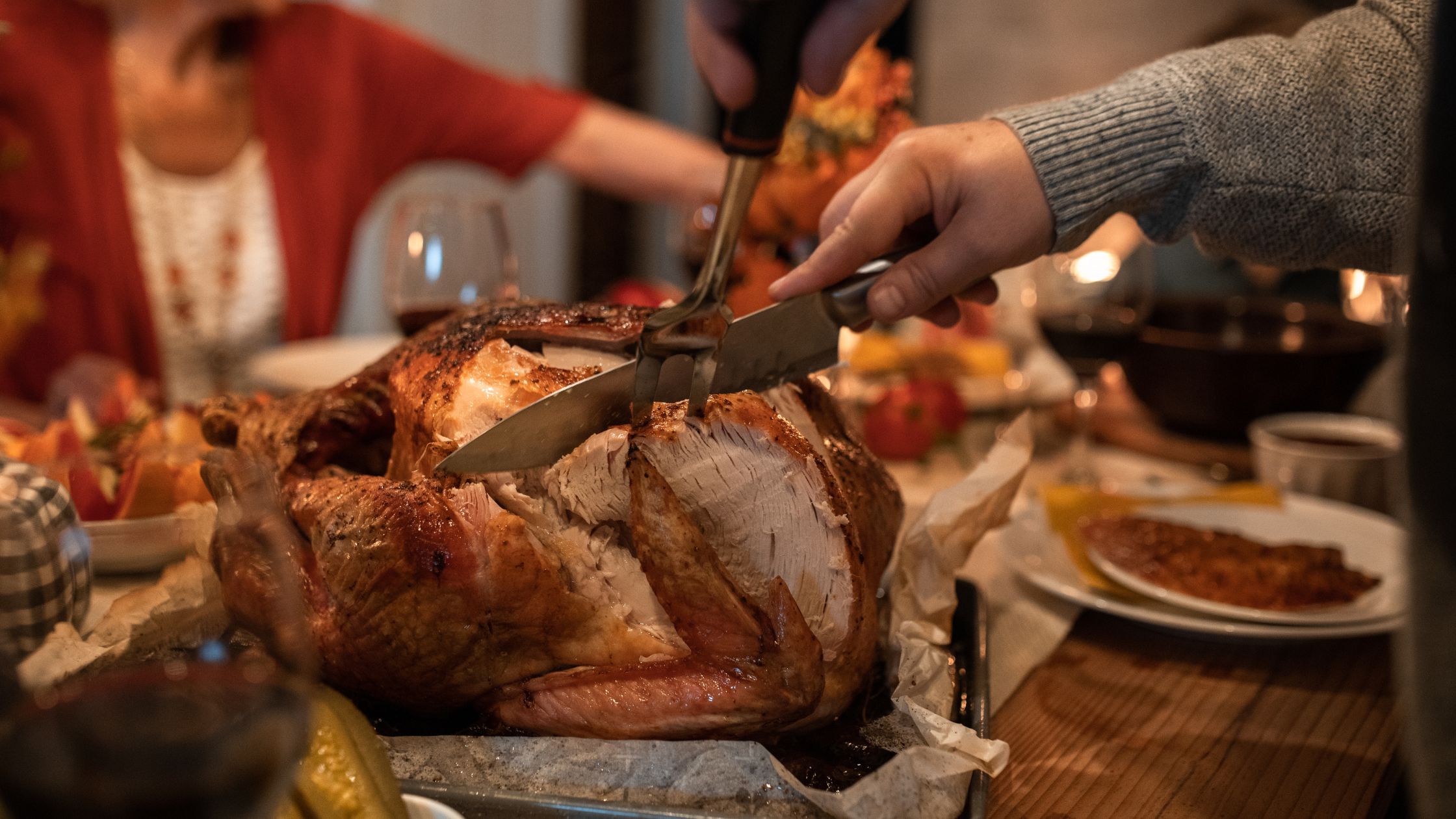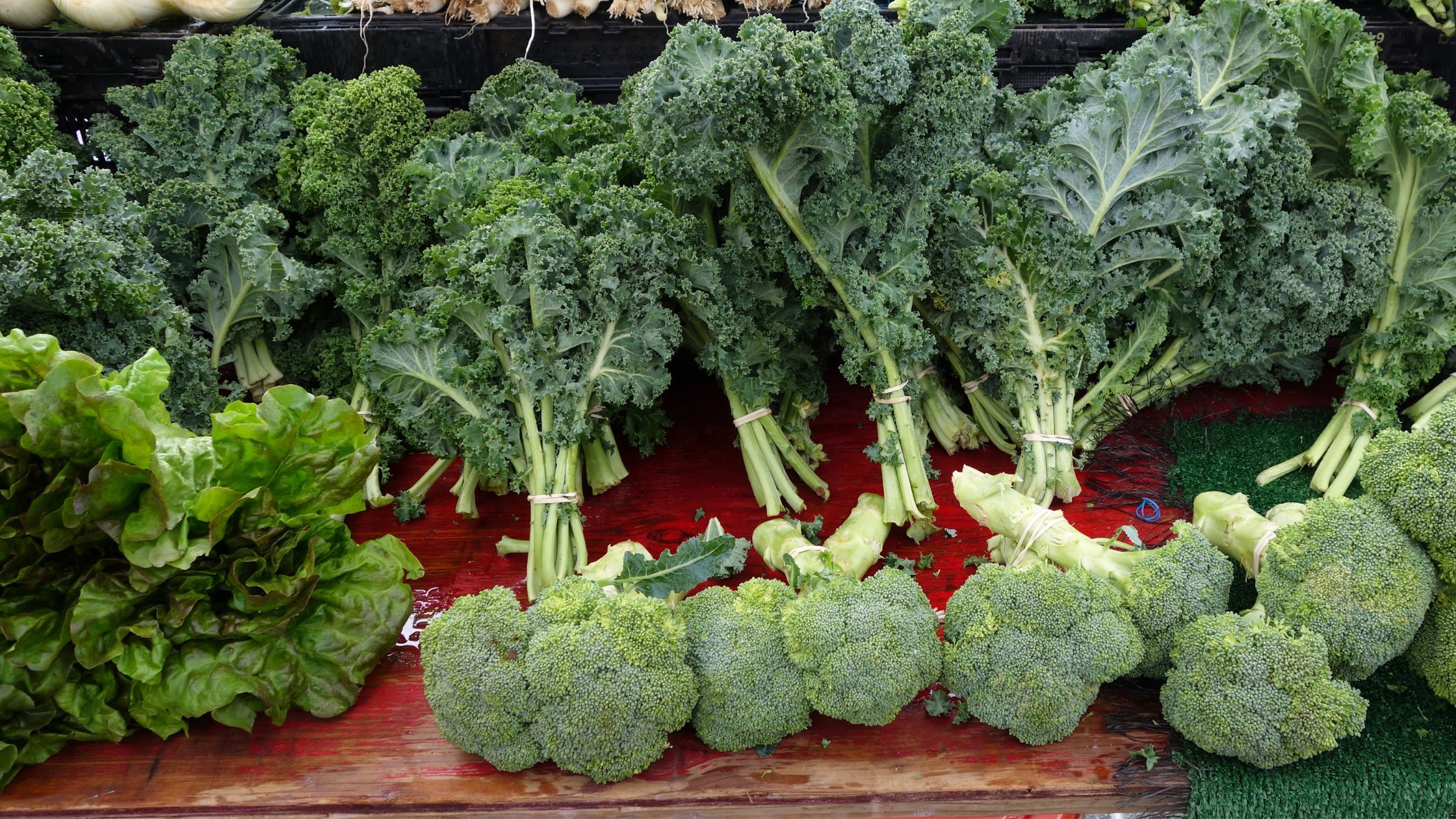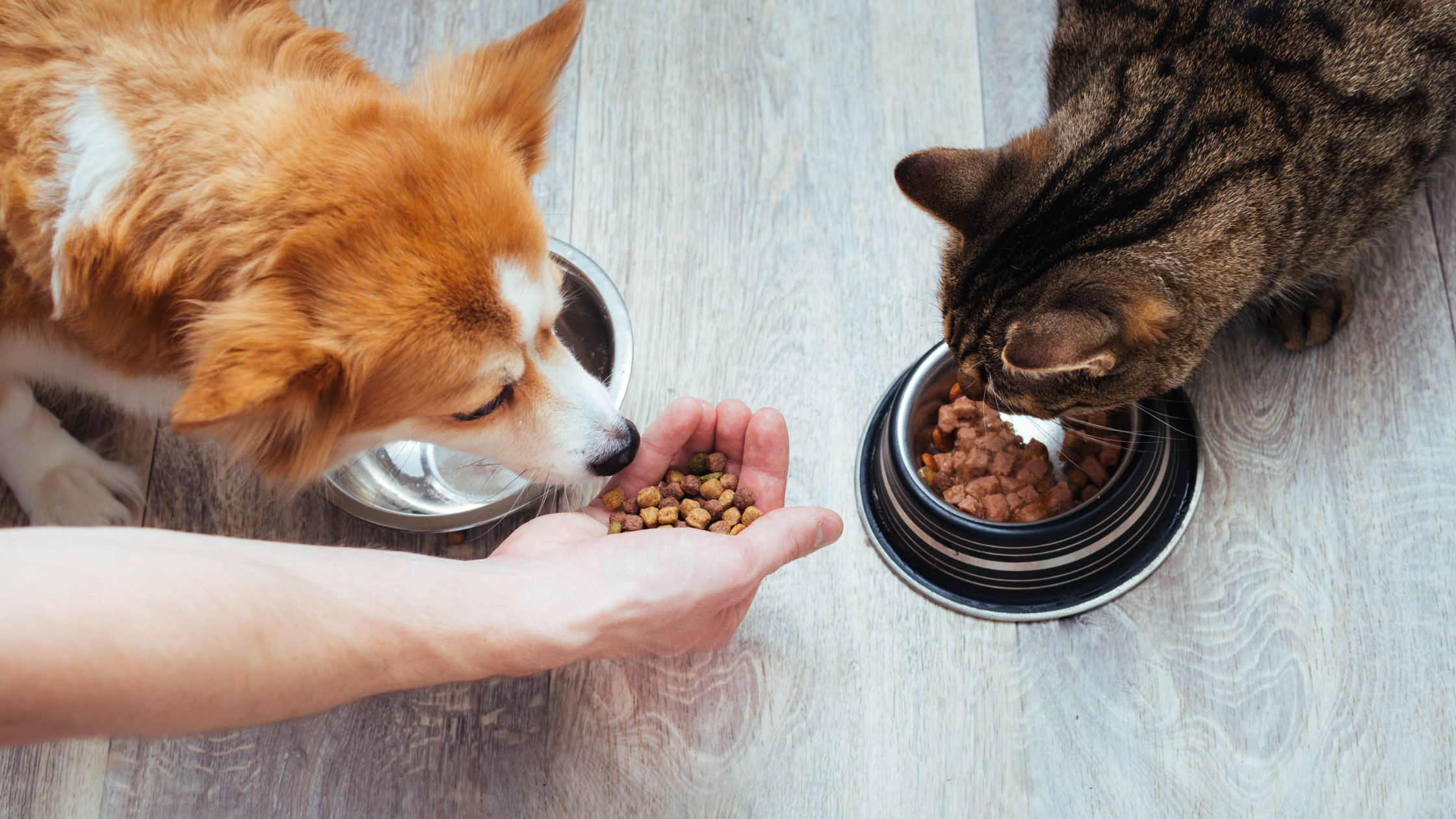Every year, as special occasions roll around, pet owners across the country face the same adorable but guilt-inducing scene: our furry family members' mournful, pleading eyes. Whether it's Thanksgiving, Christmas, a birthday celebration, or any other festive gathering, our pets somehow become convinced that we've forgotten to feed them for days, and they're desperately trying to hypnotize us into sharing our delicious spread.
While it's tempting to slip them a sliver or a morsel, it's crucial to remember that many holiday foods are distinctly unhealthy for our beloved fur babies.
What NOT to feed them during special occasions
- Turkey: The centerpiece of many celebrations, turkey often comes smothered in butter and seasoned with ingredients like onions, garlic, or various spices – none of which are safe for pets. If you want to treat them to some turkey, make sure it's plain and cooked specifically for them.
- Ham: Pork is a no-no for dogs, as consuming it can lead to pancreatitis, diarrhea, or vomiting.
- Onions: Onions contain N-propyl disulfide, which can cause anemia in dogs. This harmful substance is also found in garlic, leeks, and raw cabbage.
- Stuffing: As delicious as it is, stuffing usually contains ingredients that are dangerous for pets, such as grapes or raisins, wine, or onions.
- Nuts: Almonds, macadamias, pecans, and walnuts might be tasty for us, but they can cause pancreatitis, diarrhea, and vomiting in pets.
- Sweets: Pumpkin pie, sweet potato pie, cookies, and other desserts are off-limits for our furry friends. However, plain cooked pumpkin from a can is okay, as long as it's free from added sugars.
- Xylitol: This low-calorie sweetener can sneak into various dishes and desserts, posing a severe threat to dogs and cats. It's toxic for them, so be cautious of any foods containing xylitol.
- Chocolate: Chocolate is dangerous due to its theobromine content, which pets cannot metabolize. It can lead to seizures, diarrhea, or vomiting if consumed.
- Caffeine: Sources of caffeine like coffee, tea, and soda should be kept out of reach, as they can cause seizures, diarrhea, vomiting, abnormal heart rhythms, and even death in pets.
- Alcohol: While you may not intentionally give your pets alcohol, be cautious during gatherings, as they might attempt to sneak sips from drinks like eggnog or punch. Dogs and cats can't tolerate alcohol, resulting in vomiting, dehydration, and liver or kidney issues.
Superfoods for Your Pet
Superfoods like kale and broccoli are finding their way into pet foods as owners prioritize healthy nutrition for their animals. However, ensuring that the superfoods you feed your pets are safe is essential. Not all foods that benefit us are suitable for our furry friends. If you prefer to skip expensive packaged dog food, add superfoods like carrots, kale, pumpkin, and sweet potatoes to your dog's diet.
Closing
No matter which occasion you're celebrating, whether it's Thanksgiving, Christmas, or any other special day, keeping your pets away from harmful foods is an act of love and responsibility. So, wherever you are and however you're marking the occasion, I wish you and your furry friends a happy and healthy celebration.



